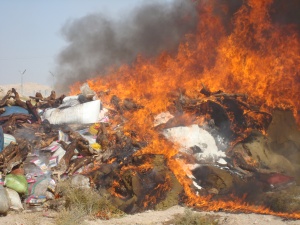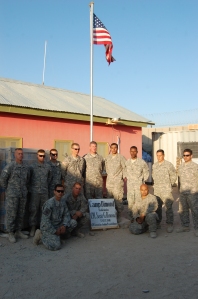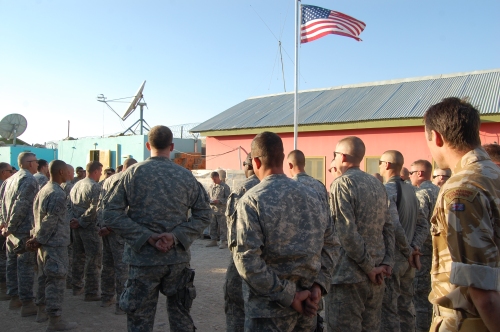Defiant School Girls To Taliban: “You Can Spray Us [With Acid] A Thousand Times; We Will Not Stop Going To School”
Students Who Were Injured In A Recent Acid Attack In Southern Afghanistan Are Now “The Faces Of Defiance”
Watch Last Nights NBC News Story
ANN CURRY: In depth now, a powerful story of courage and a reminder of what is at stake in the war in Afghanistan, a war in which Islamic militants attack young girls whose only offense is going to school. NBC’s Jim Maceda reports now from Kandahar.
JIM MACEDA: Thirteen-year-old Zahara always looked forward to school, to science class and athletics, until one morning last month, walking to the Mirwais Meena Girls’ School in Kandahar with her older cousin Chamsey. Here, just outside the school, her life changed.
ZAHARA: (Through translator) It was Wednesday. We were coming home from school when men on motorbikes drove by and threw something on our face.
MACEDA: Zahara thought it was water, just a prank, until it started to sting.
ZAHARA: (Through translator) My skin became green, then white and I knew something was really wrong.
MACEDA: Her cousin Chamsey screamed and passed out. She and five other girls were hospitalized with burns, all victims of a brutal acid attack by militants. In the eyes of the Taliban, girls are unholy if they go to school.
Colonel MIKE MALLIN: It’s an event that really shook this place up, to be quite frank.
MACEDA: For Colonel Mike Mallin, a former New York cop now training Afghan police here, it was an atrocity.
Col. MALLIN: To see this happen to children just trying to go to school and get an education, better themselves and be part of the future success of this country.
MACEDA: There have been hundreds of school-related attacks in Afghanistan over the past year alone, but nothing like this. Kandahar police say they’ve arrested four suspects, but refused to allow us to see them.
Who does she think did this?
ZAHARA: (Through translator) The enemy did it.
MACEDA: Most of these kids were back in class after four or five days, but their teachers say the mood has changed. There’s still a strong desire to learn, of course, but now that’s mixed with a deep-seated fear.
MACEDA: ‘We’re all afraid,’ said principal Mahmoud Qaderi, ‘but we don’t care. We’ll continue to teach and learn here, and that will defeat the enemy.’ Zahara admits she’s lost the joy to study, but not her dreams.
ZAHARA: (Through translator) I want to be a doctor someday and give something to my country and its children.
MACEDA: Her cousin Chamsey was left partially blind by her acid burns, but her sister had this message for the Taliban.
MACEDA: ‘You can spray us a thousand times; we will not stop going to school,’ she swore, in tears. Two cousins, both victims of terror, and now the faces of defiance. Jim Maceda, NBC News.
(NBC’s “Nightly News,” 12/22/08)



